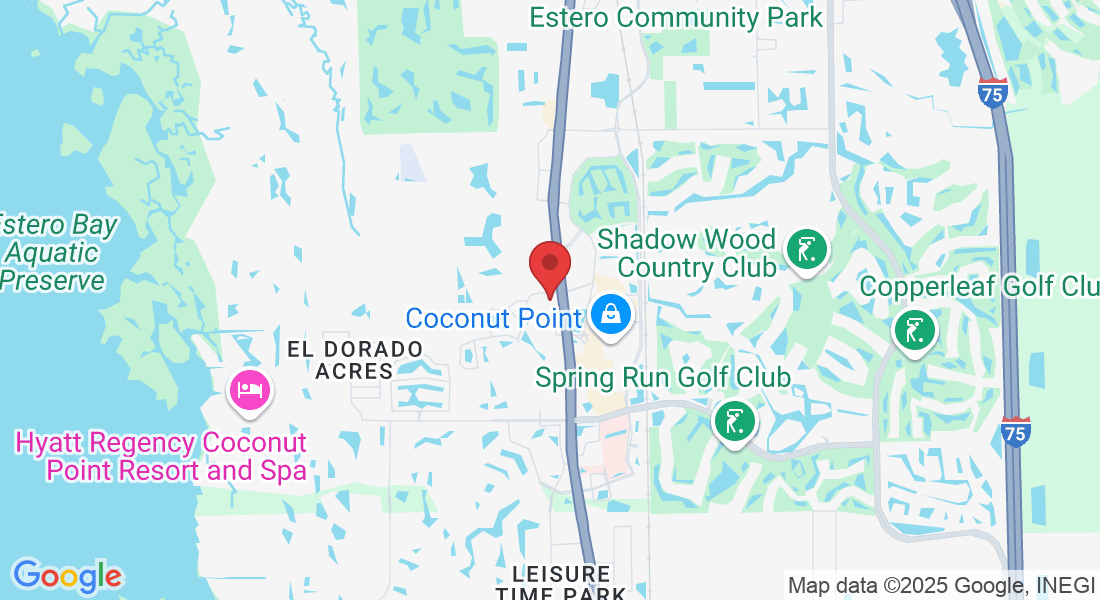Redefining Memory Care In Estero Florida
Choosing the right memory care community for a loved one is a deeply personal decision. At Gulf Coast Memory Care, nestled in the heart of Estero, Florida, we've created a haven of tranquility where residents can experience a luxurious and comfortable lifestyle. Let us help you make this important decision with confidence.
"Choose us with peace of mind; if within 90 days your heart pulls you elsewhere, we'll ensure a smooth transition and give your community fee back to help secure another place."
Your family's freedom to thrive is our top priority.

Understanding The Benefits Of Memory Care
Hear From Benita
Watch the heartfelt moment when Benita's engineer husband confidently declared, "This is the place!" It was here that Benita found the ideal environment for her mother to receive the nurturing care and robust support she truly deserved.
We believe you'll resonate with their story and feel just as confident in our ability to provide exceptional care.
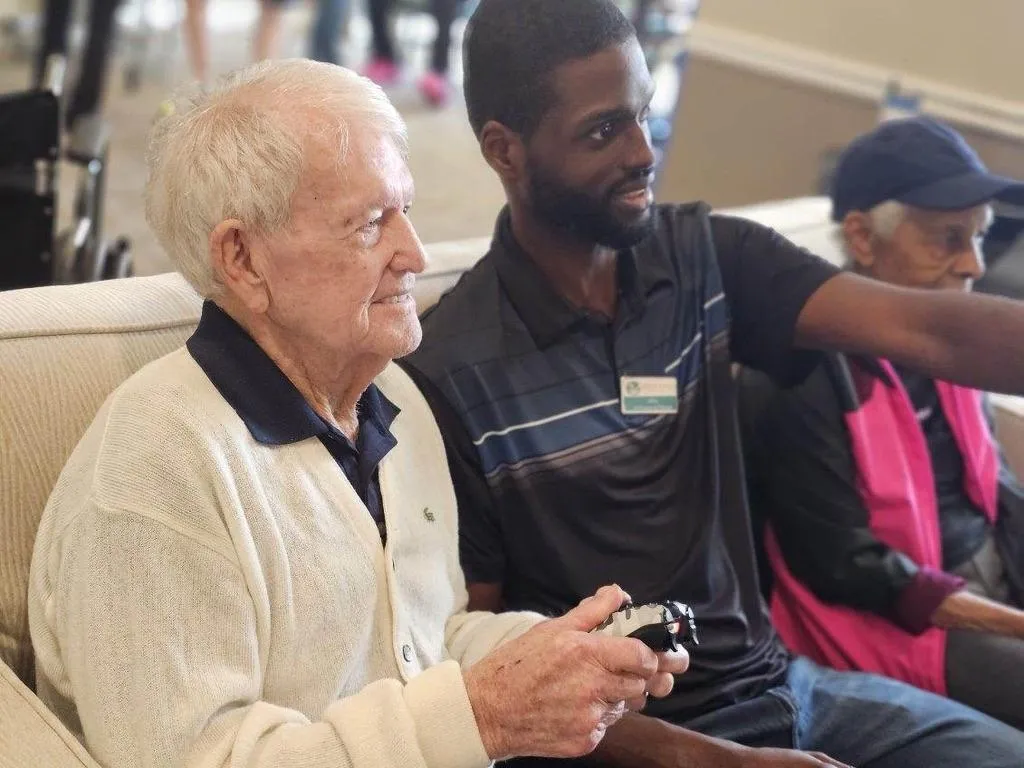
Is It The Right Time For Memory Care?
Understanding that memory care is not a one-size-fits-all solution, we prioritize personalized care plans that adapt to each individual’s progression.
Learn more about senior care and get personalized results in this quick 5 minute survey.

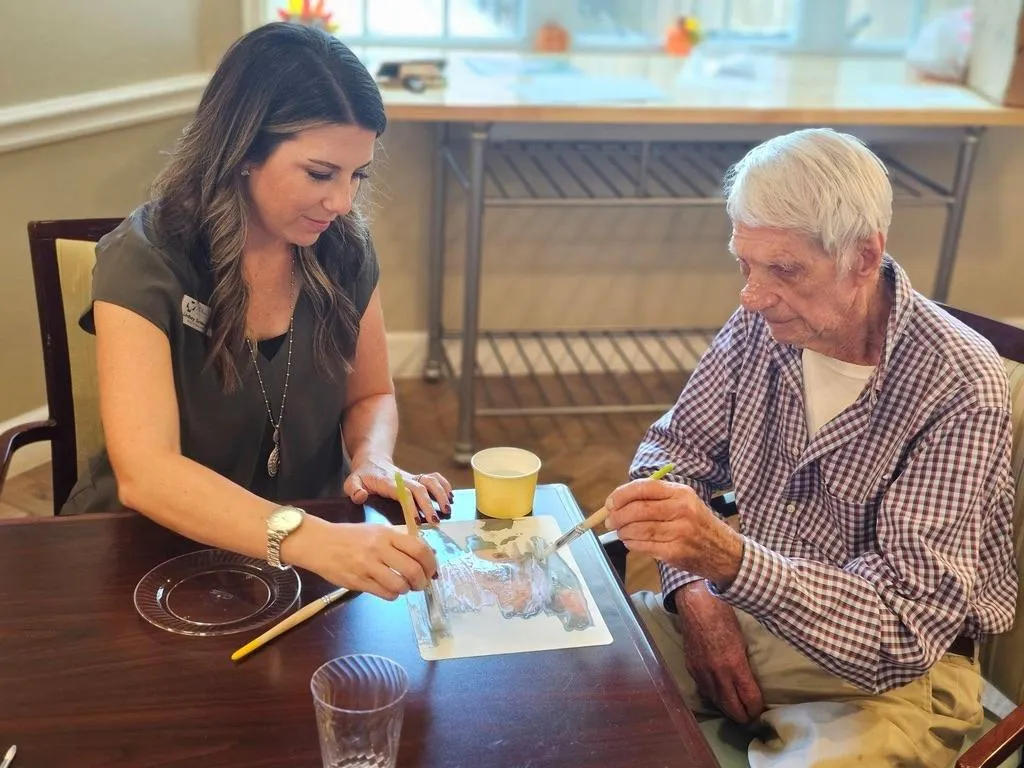
A Community For Alzheimer’s & Dementia Care
Families seeking Alzheimer’s and dementia support in Estero, Florida, can rely on our compassionate team for a community that truly cares.
Through ongoing training in the latest memory care practices and a commitment to safety, Gulf Coast Memory Care offers peace of mind for families and the highest standard of care for residents.
Love From Our Families


My mom moved into her new home a few weeks ago. I was able to visit with her this week while being in Florida and my gosh, I know she is right where she needs to be. Huge shoutout to Jerry, Diana, Paula, Kathy and Apryl. You are real life angels. The energy you bring is above and beyond. To see how you interact with not only my mom, but all the residents, it truly warms my heart. While it is heartbreaking to see my mom battle Alzheimer's, I know she is in the perfect place. She is safe and receiving the care she needs. <3 The place is clean, accommodating and most importantly feels like home. I love that there is a schedule and many activities for the residents to participate in. My mom has loved the painting and coloring
- Bill & Bonny B


Upon entering this beautiful community, I was deeply impressed by the exceptional level of care and compassion demonstrated by all the caregivers. Every member of the team, from maintenance staff to the executive director, significantly contributes to the residents' quality of life. The interior courtyards offer a safe and beautiful outdoor escape for the residents, while the dining area is both elegant and spacious. GCMC stands out as one of the premier memory care centers I have ever visited.
- Bill & Bonny B


Exceptional dedication. Genuine care 24/7, everyone is doing a great job, from Management to the care team. Jerry and Diana are conducting the business, but you can see them walking the hallway and chatting with the residents, literally knowing everyone. There is an engine who works behind the scenes to have the day and night activity running smoothly. Family feeling, warmth, and genuine care, overall, 5 stars. Residents are never alone, there is always a pair of eyes to watch and hands ready to help as needed, but all is done in a certain way, so our loved ones don’t feel any loss of their independence. Beautifully done. The activities are not just lines on paper, everyone is involved. Food is first class.
- Bill & Bonny B
Our Senior Care Amenities
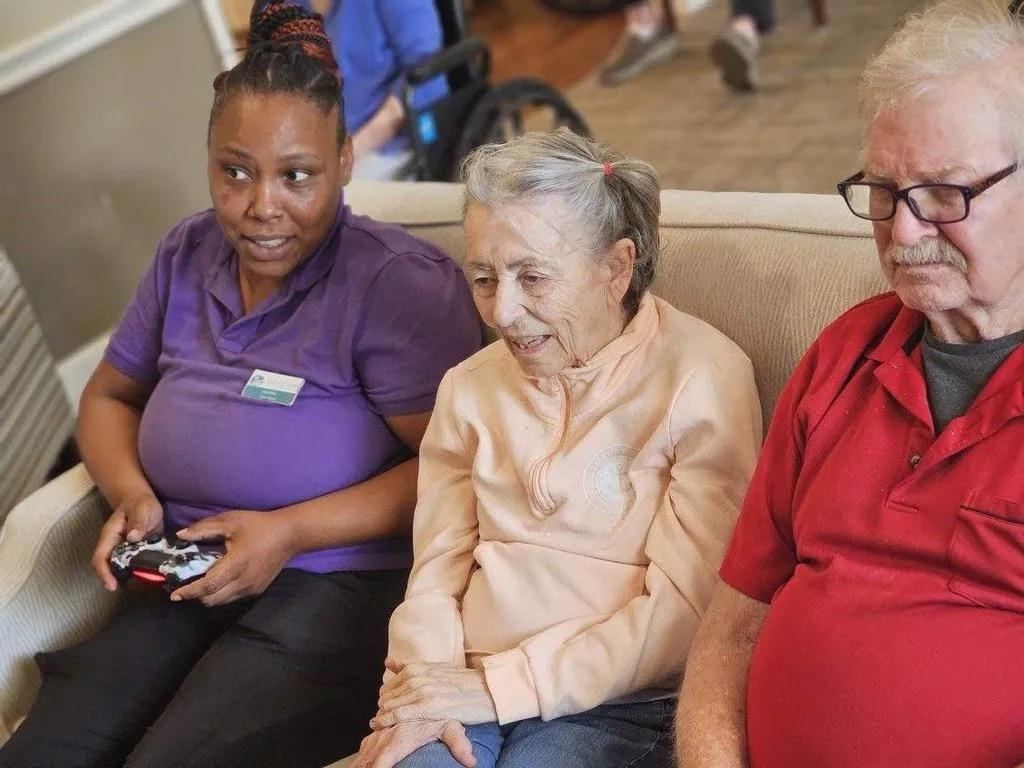
One-site beauty salon and barbershop
Personalized, chef-prepared meals
Customized activity programs
Craft and hobby room
Family living room
Full Library
Abundant natural light to minimize sundowning
Located next to Coconut Point Shopping Center
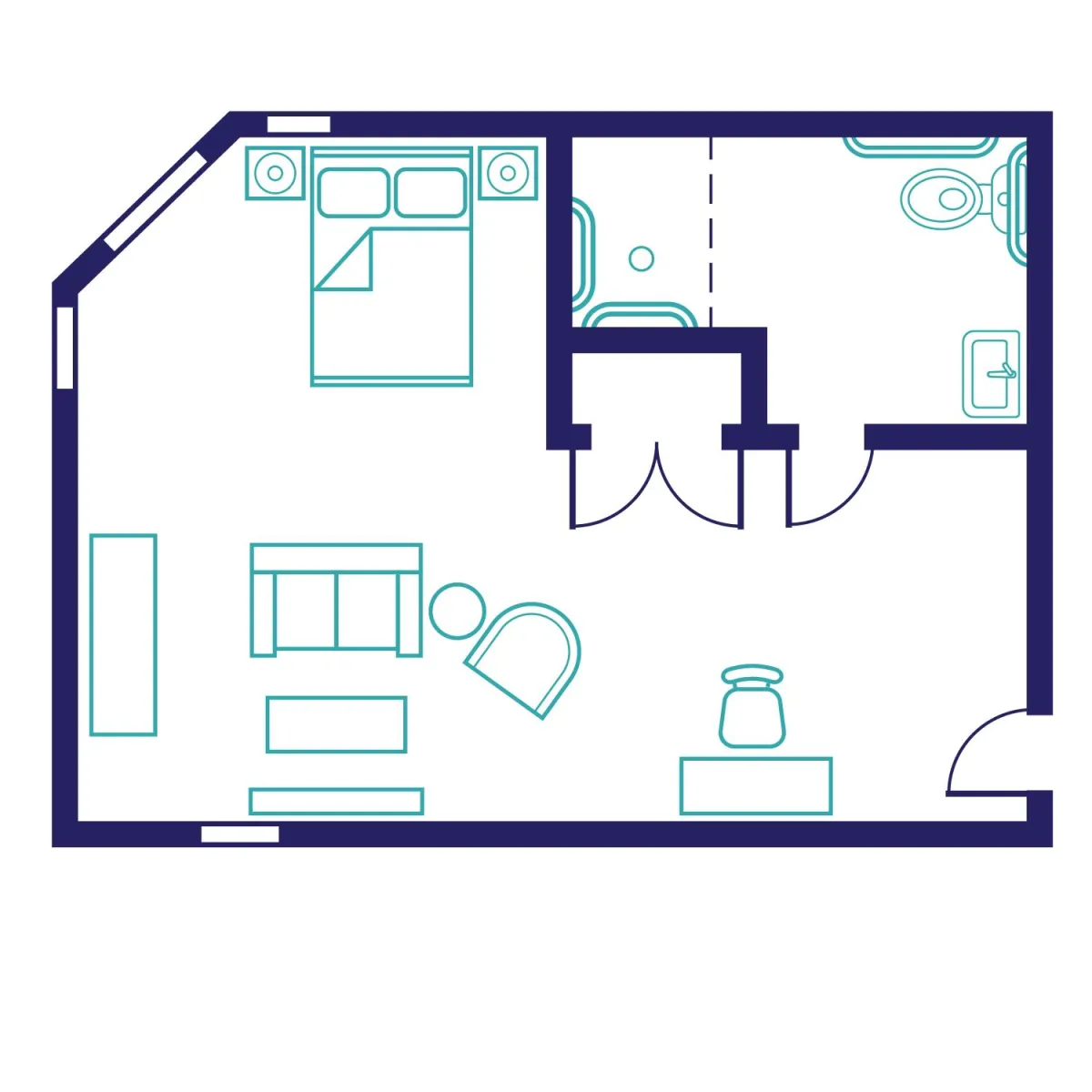
The Edison Suite
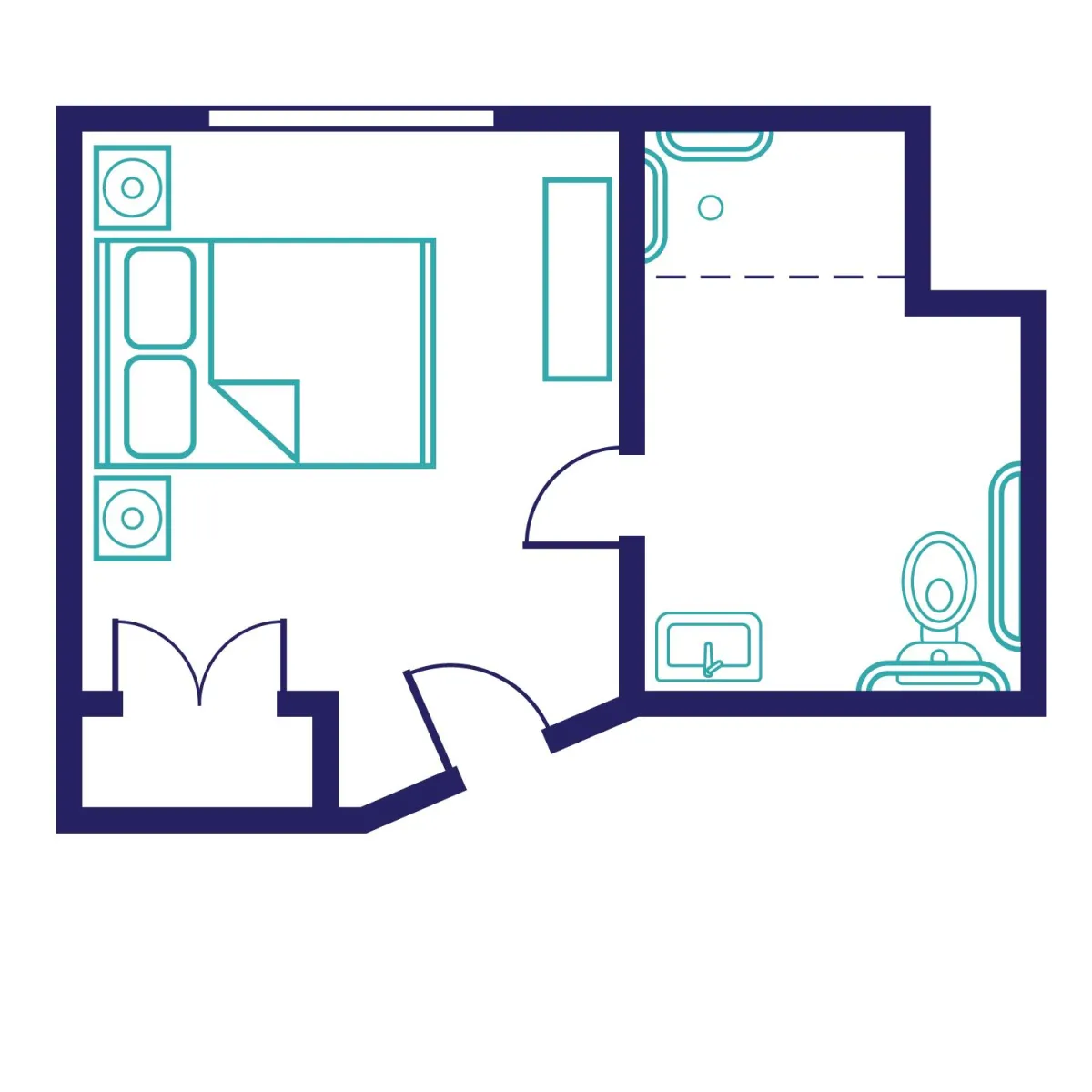
The Magnolia Suite
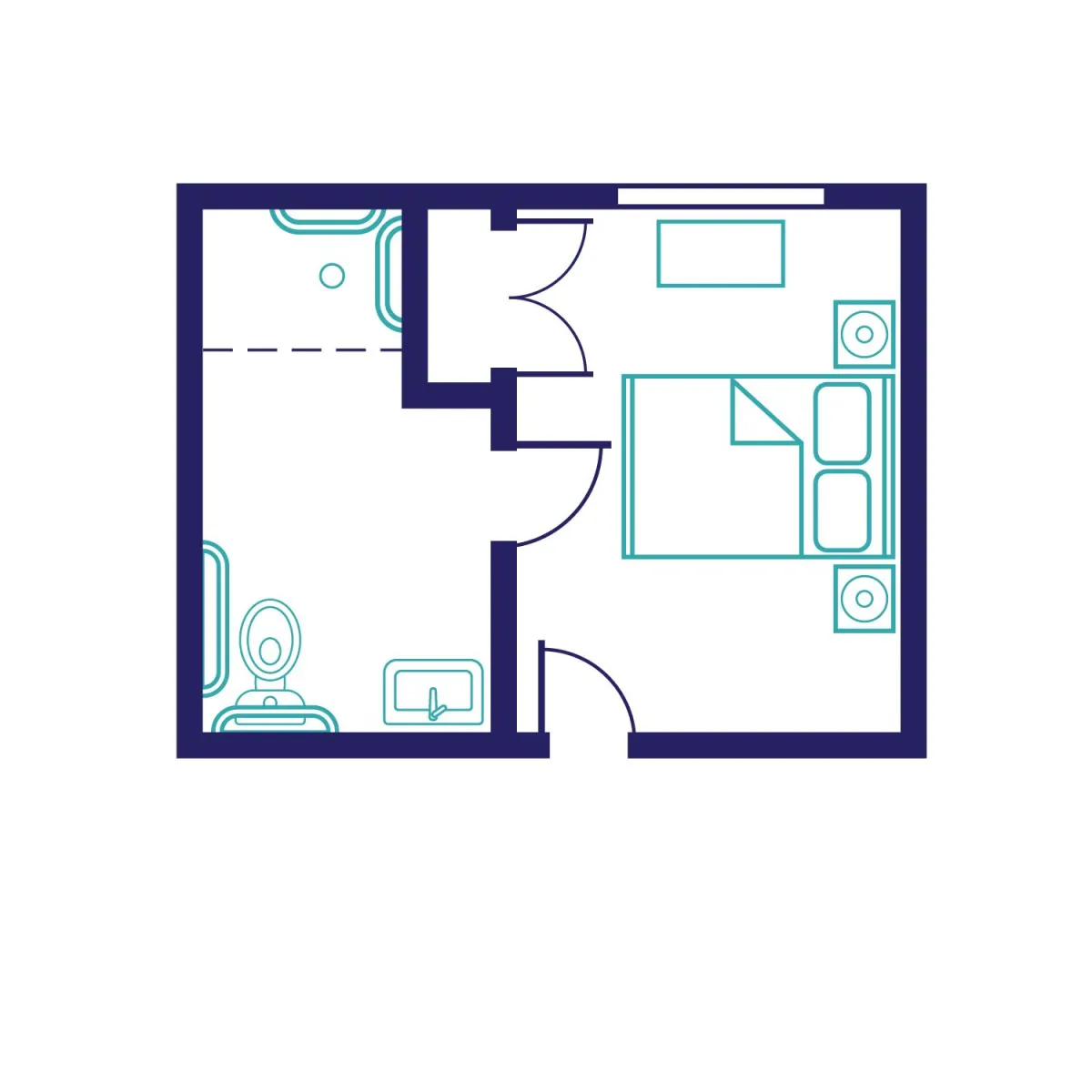
The Sugarberry Suite
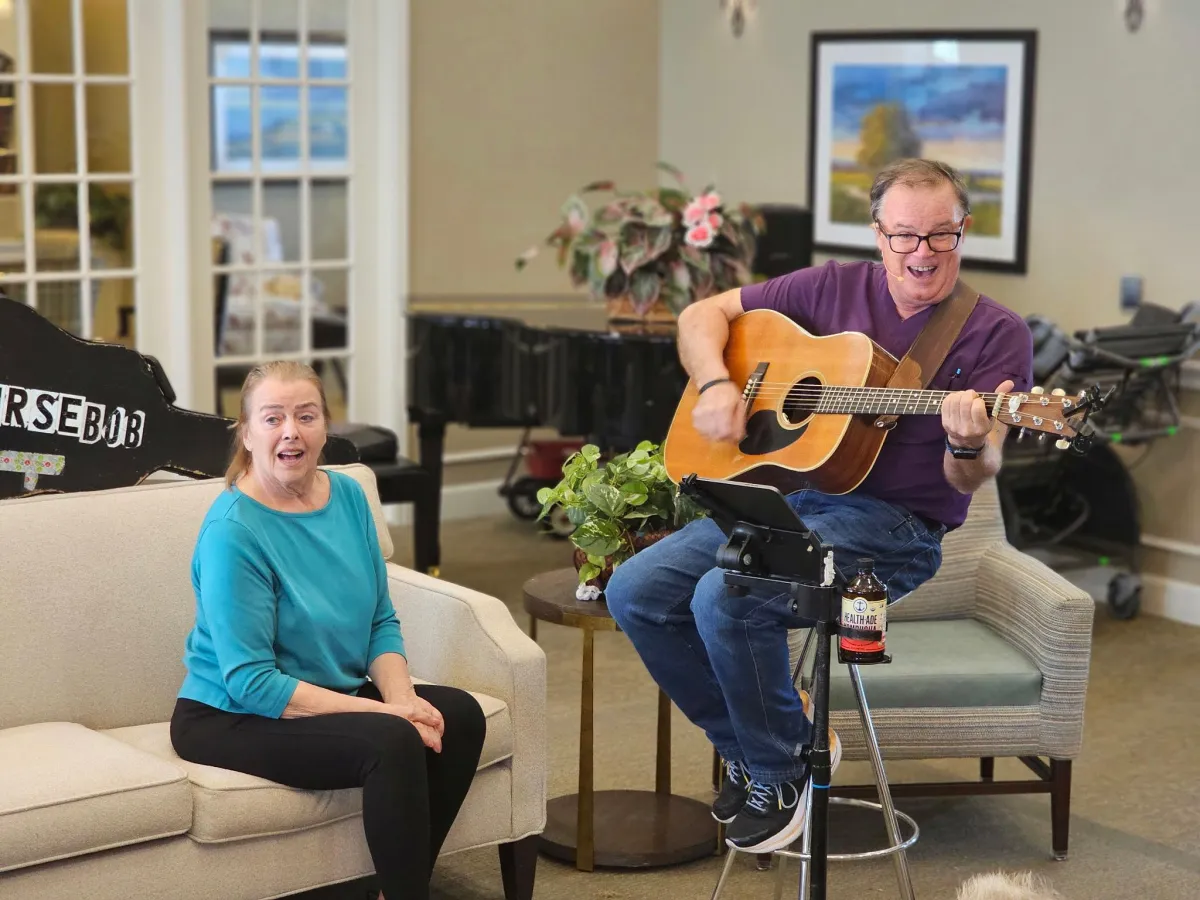
Engaging Residents With Meaningful Social Connections
We also prioritize activities that nurture both physical and mental wellness, from gentle exercise routines to social events that create a sense of community among residents. These carefully crafted programs are designed to boost mood, reduce anxiety, and encourage meaningful interactions, all of which contribute to a fulfilling lifestyle for those facing memory challenges.
Our Commitment To You
Our commitment extends to providing families with guidance and resources to understand memory loss and navigate the journey with confidence. Whether it’s through educational workshops or one-on-one consultations, we’re here to support families every step of the way, ensuring they feel connected and informed about their loved one’s care journey.

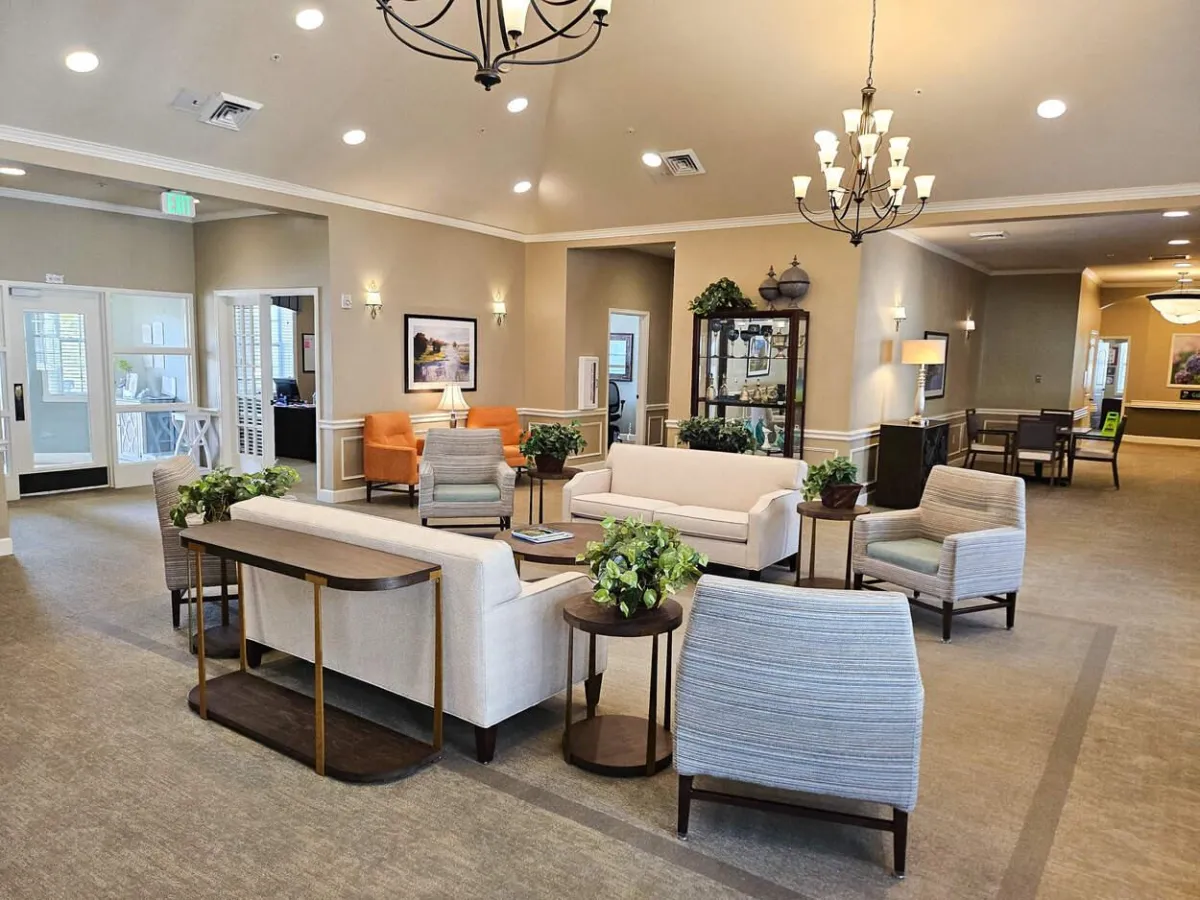
Are You Ready To Get Settled In?
Embark on a transformative experience at Gulf Coast Memory Care in Estero, Florida. We're not just a memory care community; we're a sanctuary where the mind, body, and spirit are nurtured. If you're seeking a place where compassion, care, and a deep respect for the human soul are paramount, you've found the right haven.
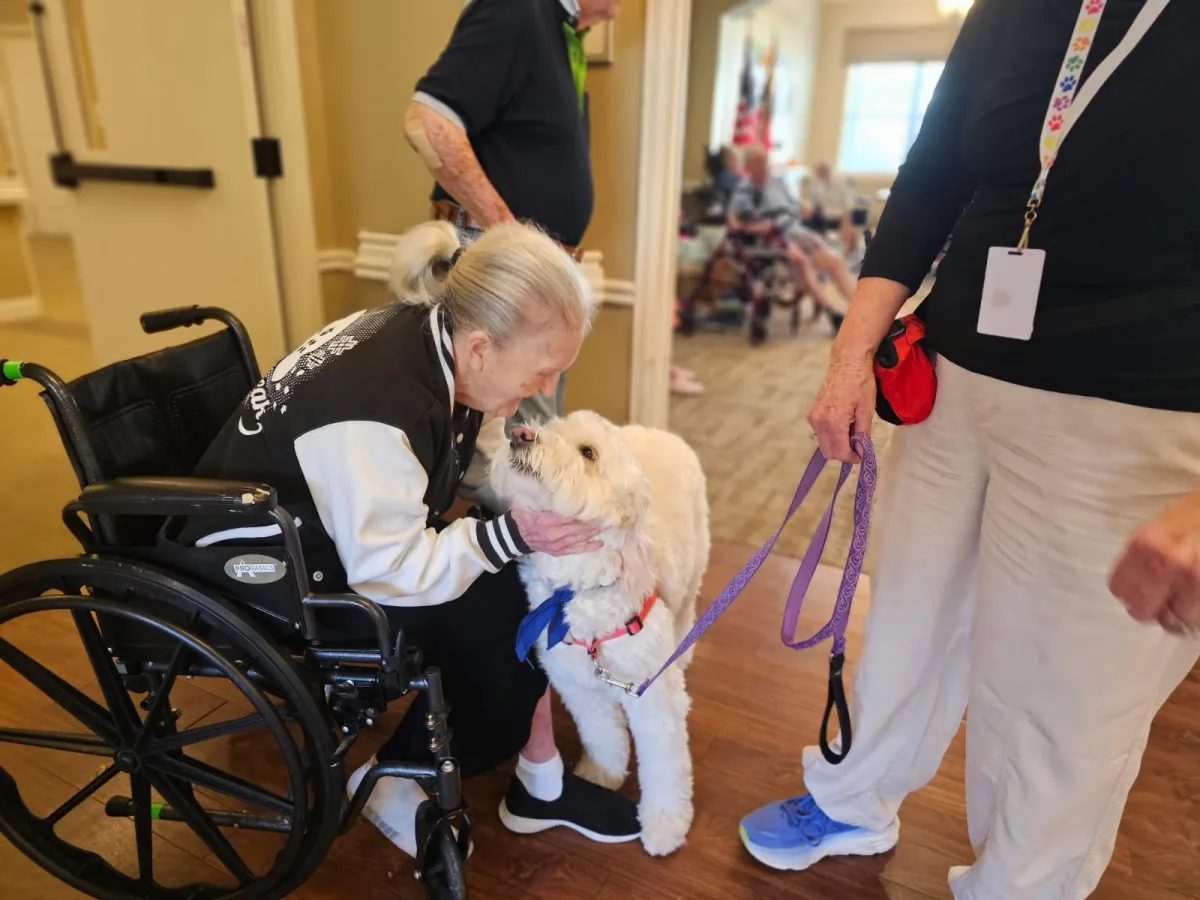
Assisted Living and Memory Care: How They Work Together
When it comes to caring for a loved one experiencing memory loss, the decision-making process can feel overwhelming. Two terms that often come up in these discussions are “assisted living” and “memory care.” While they serve different purposes, these care options can work seamlessly together to provide comprehensive support. Understanding how they complement each other can help families make informed choices and ensure their loved one receives the care they need.
When Memory Care Is Needed
Memory care becomes essential when an individual exhibits signs of significant cognitive decline, such as Alzheimer’s disease or other forms of dementia. While mild forgetfulness is common with aging, conditions like dementia involve more serious symptoms. For instance, a loved one may have difficulty managing daily tasks like dressing, cooking, or remembering appointments. They may also show behavioral changes, such as anxiety, confusion, or aggression, that disrupt their quality of life.
In its early stages, dementia can often be managed within an assisted living setting. These communities provide help with activities of daily living (ADLs), such as bathing, meal preparation, and medication management. However, as dementia progresses, the level of care required typically exceeds what traditional assisted living can offer. That’s when memory care becomes a vital next step.
Memory care programs are specifically designed to address the needs of individuals with cognitive decline. They offer a secure environment, specialized staff, and tailored activities that promote mental stimulation and emotional well-being. Recognizing when to transition to memory care ensures your loved one gets the appropriate support at the right time.
Assisted Living Communities with Memory Support
Many assisted living communities now incorporate memory care into their services, creating a continuum of care for residents. This approach benefits families who want their loved one to remain in a familiar environment while receiving specialized support as their condition evolves.
What Is Memory Support in Assisted Living?
Memory support bridges the gap between general assisted living and dedicated memory care units. It includes:
Trained staff: Caregivers receive specific training in dementia care, enabling them to manage the unique challenges associated with cognitive decline.
Safe environments: Communities with memory support often have secure areas to prevent wandering, a common safety concern for individuals with dementia.
Engaging programs: Activities designed to enhance cognitive function, such as music therapy, art projects, or reminiscence sessions, are integral to memory support.
How They Work Together
The collaboration between assisted living and memory care allows residents to transition smoothly from one level of care to another. For example, a resident in assisted living may start with minimal support but can access memory care services as their needs change. This flexibility ensures continuity of care without the stress of moving to a new community.
Families can take comfort in knowing that their loved one is receiving personalized care in a secure and nurturing setting.
Benefits of Specialized Care for Dementia
Memory care offers several advantages over standard assisted living when it comes to addressing dementia-related needs. Here’s how specialized care can make a difference:
Enhanced Quality of Life
Structured routines and engaging activities help reduce confusion and anxiety in individuals with dementia. Memory care programs are designed to provide a sense of stability, which can significantly improve a person’s day-to-day experience.
Expertise in Dementia Care
Staff members in memory care units are trained to handle the unique challenges posed by cognitive decline. From understanding how to communicate effectively to managing behavioral changes, these caregivers provide support that goes beyond what general assisted living can offer.
Safety and Security
Memory care communities are equipped with safety measures like secured doors, monitoring systems, and wander prevention technology. These features protect residents while allowing them to maintain a degree of independence.
Tailored Therapeutic Activities
Memory care programs often incorporate therapies that are proven to benefit individuals with dementia. Activities like music therapy, gardening, or sensory stimulation help preserve cognitive function and provide joy.
Support for Families
Caring for a loved one with dementia can be emotionally taxing. Memory care communities offer resources for families, such as support groups and educational sessions, to help them navigate this challenging journey.
Choosing the Right Assisted Living with Memory Care
Selecting a community that offers both assisted living and memory care requires careful consideration. Here are some key factors to evaluate:
Level of Care Provided
Does the community offer a continuum of care, allowing residents to transition from assisted living to memory care if needed? Look for communities that prioritize personalized care plans tailored to your loved one’s needs.
Staff Qualifications
Ask about the training and experience of caregivers. Specialized dementia training ensures that staff members are equipped to handle the complexities of memory-related conditions.
Programs and Activities
Explore the types of activities available for both assisted living and memory care residents. Enriching programs not only improve quality of life but also foster social connections and engagement.
Environment and Safety
Visit the community to observe its safety features and overall atmosphere. A well-designed memory care unit will feel welcoming and secure, with thoughtful touches like clear signage and calming decor.
Questions to Ask
When touring a community, consider asking the following:
How does the community handle transitions between assisted living and memory care?
What is the staff-to-resident ratio in memory care?
Are family members involved in creating care plans?
What types of therapies or activities are offered for memory care residents?
Taking the time to thoroughly evaluate your options ensures that you select the best fit for your loved one’s needs.
Conclusion
Assisted living and memory care are both valuable resources for individuals facing challenges with aging and memory loss. While assisted living provides essential support with daily tasks, memory care offers specialized attention for those with dementia, creating a partnership that enhances quality of life.
By choosing a community that combines these services, families can ensure their loved one receives compassionate, tailored care in a secure and engaging environment. When navigating the complexities of memory loss, the right support can make all the difference in maintaining dignity, comfort, and connection.

Assisted Living and Memory Care: How They Work Together
When it comes to caring for a loved one experiencing memory loss, the decision-making process can feel overwhelming. Two terms that often come up in these discussions are “assisted living” and “memory care.” While they serve different purposes, these care options can work seamlessly together to provide comprehensive support. Understanding how they complement each other can help families make informed choices and ensure their loved one receives the care they need.
When Memory Care Is Needed
Memory care becomes essential when an individual exhibits signs of significant cognitive decline, such as Alzheimer’s disease or other forms of dementia. While mild forgetfulness is common with aging, conditions like dementia involve more serious symptoms. For instance, a loved one may have difficulty managing daily tasks like dressing, cooking, or remembering appointments. They may also show behavioral changes, such as anxiety, confusion, or aggression, that disrupt their quality of life.
In its early stages, dementia can often be managed within an assisted living setting. These communities provide help with activities of daily living (ADLs), such as bathing, meal preparation, and medication management. However, as dementia progresses, the level of care required typically exceeds what traditional assisted living can offer. That’s when memory care becomes a vital next step.
Memory care programs are specifically designed to address the needs of individuals with cognitive decline. They offer a secure environment, specialized staff, and tailored activities that promote mental stimulation and emotional well-being. Recognizing when to transition to memory care ensures your loved one gets the appropriate support at the right time.
Assisted Living Communities with Memory Support
Many assisted living communities now incorporate memory care into their services, creating a continuum of care for residents. This approach benefits families who want their loved one to remain in a familiar environment while receiving specialized support as their condition evolves.
What Is Memory Support in Assisted Living?
Memory support bridges the gap between general assisted living and dedicated memory care units. It includes:
Trained staff: Caregivers receive specific training in dementia care, enabling them to manage the unique challenges associated with cognitive decline.
Safe environments: Communities with memory support often have secure areas to prevent wandering, a common safety concern for individuals with dementia.
Engaging programs: Activities designed to enhance cognitive function, such as music therapy, art projects, or reminiscence sessions, are integral to memory support.
How They Work Together
The collaboration between assisted living and memory care allows residents to transition smoothly from one level of care to another. For example, a resident in assisted living may start with minimal support but can access memory care services as their needs change. This flexibility ensures continuity of care without the stress of moving to a new community.
Families can take comfort in knowing that their loved one is receiving personalized care in a secure and nurturing setting.
Benefits of Specialized Care for Dementia
Memory care offers several advantages over standard assisted living when it comes to addressing dementia-related needs. Here’s how specialized care can make a difference:
Enhanced Quality of Life
Structured routines and engaging activities help reduce confusion and anxiety in individuals with dementia. Memory care programs are designed to provide a sense of stability, which can significantly improve a person’s day-to-day experience.
Expertise in Dementia Care
Staff members in memory care units are trained to handle the unique challenges posed by cognitive decline. From understanding how to communicate effectively to managing behavioral changes, these caregivers provide support that goes beyond what general assisted living can offer.
Safety and Security
Memory care communities are equipped with safety measures like secured doors, monitoring systems, and wander prevention technology. These features protect residents while allowing them to maintain a degree of independence.
Tailored Therapeutic Activities
Memory care programs often incorporate therapies that are proven to benefit individuals with dementia. Activities like music therapy, gardening, or sensory stimulation help preserve cognitive function and provide joy.
Support for Families
Caring for a loved one with dementia can be emotionally taxing. Memory care communities offer resources for families, such as support groups and educational sessions, to help them navigate this challenging journey.
Choosing the Right Assisted Living with Memory Care
Selecting a community that offers both assisted living and memory care requires careful consideration. Here are some key factors to evaluate:
Level of Care Provided
Does the community offer a continuum of care, allowing residents to transition from assisted living to memory care if needed? Look for communities that prioritize personalized care plans tailored to your loved one’s needs.
Staff Qualifications
Ask about the training and experience of caregivers. Specialized dementia training ensures that staff members are equipped to handle the complexities of memory-related conditions.
Programs and Activities
Explore the types of activities available for both assisted living and memory care residents. Enriching programs not only improve quality of life but also foster social connections and engagement.
Environment and Safety
Visit the community to observe its safety features and overall atmosphere. A well-designed memory care unit will feel welcoming and secure, with thoughtful touches like clear signage and calming decor.
Questions to Ask
When touring a community, consider asking the following:
How does the community handle transitions between assisted living and memory care?
What is the staff-to-resident ratio in memory care?
Are family members involved in creating care plans?
What types of therapies or activities are offered for memory care residents?
Taking the time to thoroughly evaluate your options ensures that you select the best fit for your loved one’s needs.
Conclusion
Assisted living and memory care are both valuable resources for individuals facing challenges with aging and memory loss. While assisted living provides essential support with daily tasks, memory care offers specialized attention for those with dementia, creating a partnership that enhances quality of life.
By choosing a community that combines these services, families can ensure their loved one receives compassionate, tailored care in a secure and engaging environment. When navigating the complexities of memory loss, the right support can make all the difference in maintaining dignity, comfort, and connection.
Come Visit Us
We can't wait to hear from you! Fill out our contact form to get started or if you would like to see our community for yourself, schedule a tour here.
Gulf Coast Memory Care
(239) 221-6120
22900 Lyden Dr, Estero, FL 33928
AL# 12921
Privacy Policy | Accessibility Statement | Visitation Policy

